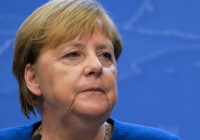Communication between governments and citizens has changed over the years. The digital era has provided state actors with new channels to spread their messages. Different channels offer different types of outreach. Nevertheless, successful communication requires consistency and coordination.
This is even more important in the current crisis we have witnessed with the coronavirus pandemic. In order to stay in touch with citizens, politicians and state authorities must adapt and use popular digital platforms. Social media networks that focus on sharing photos and videos — particularly Instagram and Snapchat — are the most popular form among the youth. Through a thorough analysis of Instagram accounts of selected state institutions and elected representatives in some Western and Central Eastern Europe, the following trends have been identified.
Following Austria and Germany
This study shows that Austrian Chancellor Sebastian Kurz and German Chancellor Angela Merkel have favored Instagram stories over regular posts when informing the public about COVID-19, the disease caused by the novel coronavirus. Kurz has shared stories containing Q&As about the virus and state restrictions to curb its spread, which has meant information is easily accessible to younger citizens. Special attention has been given to reliable sources, from where users can find further details. This is crucial in helping to direct people to trustworthy information and limit the spread of disinformation online.
From February to April, Kurz’s followers doubled, making his Instagram account the most popular among leaders in Central Europe. A higher number of followers correlates with greater support of leaders in polls observed in March and April by Politico.

In both Austria and Germany, there has been a shift in voter preferences. In May, 44% of voters favored the Austrian People’s Party, which was a rise of 4% from before the coronavirus lockdown was announced in March. In Germany, the Christian Democratic Union saw an increase from 27% to 38% during the same period. While there has also been a significant change in the case of Slovak Prime Minister Igor Matovic, he only joined Instagram on March 5 and, therefore, it is too soon to examine his performance on the platform and the subsequent impact on his popularity with voters.
While Merkel’s account represents the whole chancellery office, in Austria, the chancellery office and the chancellor use separate accounts. The Austrian chancellery office has used the Instagram account to help public institutions promote the measures introduced to slow the spread of COVID-19. The campaign has used pictures to remind people of hygienic standards and videos featuring Austrian personalities explaining how to behave in the current crisis. Out of all monitored accounts in this study, the Austrian chancellery office has published posts with the highest frequency during the pandemic.
Public personalities urging people to stay at home were also featured in videos shared by the German Federal Ministry of Health. The campaign used the hashtag #schauaufdich, which translates to #LookAfterYourself.

The Czech Republic and Slovakia
The Czech government opted for short, explanatory videos with health experts and other public figures. This involved featuring a popular personality, or someone with an expert status, who explains all necessary information to citizens. The tactic appears to have gained popularity among users.
Instagram accounts of all governmental bodies focused on the fight against COVID-19 have seen significant increases in followers. The record-breaker is the German Federal Ministry of Health, which saw its number of followers rise by over 3,911% between March 1 and May 15.
The accounts of Czech and Slovak public representatives differ from those of their Western neighbors, particularly in their efforts to inspire people to follow protective measures against the virus. In particular, this has involved showing politicians wearing face masks on their social media posts.

The Slovak president, Zuzana Caputova, has tried to lead by example and contributed to the campaign with the hashtag #ruskoniejehanba (#MaskIsNotAShame). This may have helped with containing the virus in Slovakia or the Czech Republic. The Slovak government has also used its account for the promotion of a state website that was created specifically to give citizens reliable information about the coronavirus.
The main difference between institutional accounts and personal accounts of politicians is the objective of the message. Political figures tend to project their personality either by posting strong messages or by informal photos from their office. Institutional accounts focus primarily on informing the public about important events, news and, in the case of combating the coronavirus, measures and recommendations to protect the health of citizens.
Although both types of accounts focus on a different goal, the numbers show that Instagram can play a significant role in strategic communication. Indeed, it should not be disregarded as simply a platform of amusing selfies or videos.
During such a public health crisis, citizens demand more information from both elected representatives and public institutions. This fact is underlined by rising rates in followers on social media. In times when there is a lack of interest in politics among young people, this might be a strategy to increase communication with the youth. It is crucial for governments to be present on this platform in order to engage with this audience.
*[GLOBSEC is a partner institution of Fair Observer.]
The views expressed in this article are the author’s own and do not necessarily reflect Fair Observer’s editorial policy.
Support Fair Observer
We rely on your support for our independence, diversity and quality.
For more than 10 years, Fair Observer has been free, fair and independent. No billionaire owns us, no advertisers control us. We are a reader-supported nonprofit. Unlike many other publications, we keep our content free for readers regardless of where they live or whether they can afford to pay. We have no paywalls and no ads.
In the post-truth era of fake news, echo chambers and filter bubbles, we publish a plurality of perspectives from around the world. Anyone can publish with us, but everyone goes through a rigorous editorial process. So, you get fact-checked, well-reasoned content instead of noise.
We publish 2,500+ voices from 90+ countries. We also conduct education and training programs
on subjects ranging from digital media and journalism to writing and critical thinking. This
doesn’t come cheap. Servers, editors, trainers and web developers cost
money.
Please consider supporting us on a regular basis as a recurring donor or a
sustaining member.
Will you support FO’s journalism?
We rely on your support for our independence, diversity and quality.






